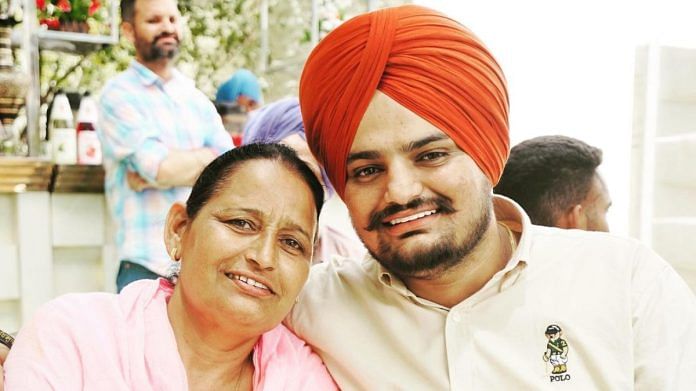New Delhi: The Union health ministry’s move to seek details from the Punjab government over reports that the late singer Sidhu Moosewala’s mother gave birth to a baby boy through in-vitro fertilisation (IVF) at the age of 58 has put the spotlight on the Artificial Reproductive Technique (ART) Regulation Act, 2021.
This law fixes the upper age limits for women and men to undergo ART treatment at 50 and 55 years respectively.
In its letter, the ministry asked the state government to submit a report of action taken “as per the ART Regulation Act, 2021”. The ministry action was prompted by a video shared four days ago by Balkaur Singh and Charanjit Kaur — the parents of Sidhu Moosewala, who was shot dead nearly two years ago at the age of 29 — with the newborn in his father’s arms. Hospital staff gathered around him as he fed a spoonful of milk to the infant and cut a cake.
What does the ART Act say?
ART is the first law that regulates the age till when a couple can have a child through artificial methods out of health concerns for the woman.
The act includes all techniques that seek to induce a pregnancy by maturing the sperm or the oocyte (immature egg cell) outside the human body and transferring the gamete or the embryo into the reproductive system of a woman.
These include gamete donation (sperm or egg), IVF, and gestational surrogacy provided through designated clinics that offer ART-related treatments and ART banks, which collect, screen and store gametes.
IVF is the most prevalent method where an ovum from a woman is fertilised with sperm in a laboratory before being planted back in the womb. When a woman is past her fertile age or cannot produce good-quality ova, eggs from a donor are used for the procedure.
While Union Health Secretary Apurva Chandra was not available for comment, a senior ministry official said: “The act slaps a fine between Rs 5 to 10 lakhs for the first contravention. Subsequent violations attract imprisonment of three to eight years, along with a fine of Rs 10 to 20 lakh.”
The official also said that as reported by the media, it was possible that Moosewala’s parents underwent the IVF treatment abroad — in which case the act would not be applicable, but added it was a matter of investigation.
Other officials in the reproductive health division underlined that prior to 2021, there was no upper age limit for assisted reproduction in the country, though guidelines by the Indian Council of Medical Research said the minimum age of women opting for such procedures should be 20.
“This left room for many geriatric couples to achieve parenthood in their 60s and even 70s. We kept getting complaints, following which the age restriction was introduced in the ART Act,” an official said.
‘Dangerous implications’
IVF specialists say couples ignore the regulations enshrined in the law, and this could prove dangerous for women.
“Pregnancy is a complex physiological process and nature has protected women from experiencing it beyond a safe age by ensuring that women don’t get pregnant beyond menopause,” said Dr Sarada M, a senior gynaecologist and obstetrician with Yashoda Hospital in Hyderabad.
She told ThePrint that women should not push the age limit for IVF, adding that any pregnancy at above 35 years of age is high-risk.
Mumbai-based IVF specialist Dr Aniruddha Malpani said the instances of elderly couples opting for IVF has gone down following the ART Act, but there could be some centres offering it surreptitiously.
“I won’t be surprised if investigation proves that documents were fudged to show that couples had gone abroad for the treatment, while in reality they may have got it done locally,” he said.
What other countries do
Most countries over the past decade have enforced age restrictions for such procedures and have fixed an upper limit of 45 to 50 years for women. However, in countries like Malaysia and Thailand, there is no national policy governing the age ceiling and the age up to which a woman can undergo treatment is decided at the clinic level.
In several European countries, egg donors are selected based on phenotype matching with the recipient. This means the donor should resemble the recipient in terms of hair, eye, and skin colour as far as possible. This also means that in these countries, patients can’t select just any donor.
(Edited by Tikli Basu)
Also read: Sidhu Moosewala’s father Balkaur Singh breaks silence on rumoured wife’s pregnancy at 58



